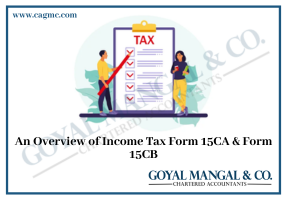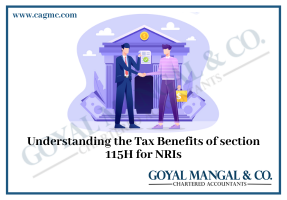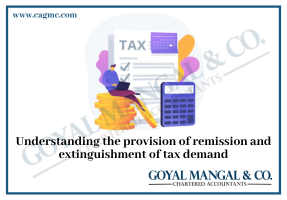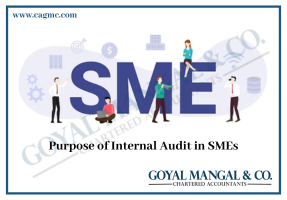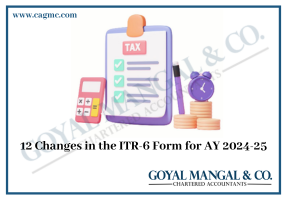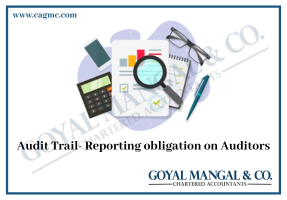Page content |

In today’s scenario, the custom of sharing gift is in much trend. While exchanging such gifts, a question arises whether we have to pay the Tax on same. Gifts are taxable as per Income tax act, 1961 under Section 56(2)(x) and are outside purview of GST, being not in nature of supply as per Section 7 of CGST Act, 2017.
style=”font-size: 20px !important; color: #1e82b6;”>Let’s discuss the provisions of taxability of gifts as per income tax:
1. Cash ( some of money received without consideration )
If aggregate value of cash is less than Rs.50000 than nothing will be taxable. If value of cash exceeds Rs. 50,000, then the whole amount will be taxable.
2. Movable Property as Gift : Movable Property includes Jewelry, Securities, bullion, Archaeological collections, Drawings, paintings, Sculptures, or any art of work.
- Without consideration : Where any person receives in the previous year any type of above mentioned property without consideration, the aggregate fair market value of which exceeds fifty thousand rupees, the whole of the aggregate FMV of such property will be taxable in the hands of receiver.
- For Inadequate Consideration : Where any person receives above mentioned moveable property in the previous year other than immovable property for a consideration which is less than the aggregate fair market value of the property by an amount exceeding Rs. 50,000 , the aggregate FMV of such property as exceeds such consideration.
The excess of the differential amount will be taxable in the hands of receiver.
3. Immovable Property as Gift:
- Without Consideration : If a person receives any immovable property in the previous year without consideration from any person, and if the Stamp duty value of property exceeds Rs. 50,000/-, then the Stamp duty value shall be considered as income from other sources and the person will be liable to pay tax accordingly.
- For Inadequate Consideration : If a person receives any immovable property in the previous year from any person for a consideration, the stamp duty value of such property exceeds such consideration, if the excess amount is more than the higher of the following amounts:
- an amount of Rs. 50,000; and
- an amount equal to 5% of the consideration
The excess of the differential amount will be taxable in the hands of receiver.
Let us understand the case with the help of an example
| Stamp duty value on property as on 01.01.2017 – Rs. 5 lakhs
Stamp duty of property on actual registration on 01.09.2018, – Rs. 6 lakhs. Consideration fixed for the transaction – Rs. 4.80 lakhs. |
| Case I | Case II |
| a. Stamp duty Value > Consideration paid (5 lac > 4.8 lac) Excess Amount = Rs. 20,000
b. Higher of – Rs. 50,000 – 5 % of Consideration (5% of Rs. 4.80 Lacs = Rs, 24,000) The difference amount is less than Rs. 50,000, hence it is not taxable |
a. Stamp duty on registration > Consideration paid (6 lac > 4.8 lac) Excess Amount = Rs. 1,20,000
b. Higher of – Rs. 50,000 – 5 % of Consideration (5% of Rs. 4.80 Lacs = Rs, 24,000) The difference amount is higher than Rs. 50,000, hence it will be taxable |
If any gift is received from below mentioned people or in following situations then those gifts are fully exempt under Income Tax.
Any amount or any property received:
-
- from any relative; or
- marriage of the individual; or
- under a will or by way of inheritance; or
- in contemplation of death of the payer or donor or
- from any local authority or
- from any fund or foundation or university or other educational institution or hospital or other medical institution or any trust or institution referred to in clause (23C) of section 10; or
- from or by any trust or institution registered under section 12A or section 12AA; or
- by any fund or trust or institution or any university or other educational institution or any hospital or other medical institution or
- by way of transaction not regarded as transfer under clause (i) or clause (iv) or clause (v) or clause (vi) or clause (via) or clause (viaa) or clause (vib) or clause (vic) or clause (vica) or clause (vicb) or clause (vid) or clause (vii) of section 47; or
- from an individual by a trust created or established solely for the benefit of relative of the individual.
- any compensation or other payment, due to or received by any person, by whatever name called, in connection with the termination of his employment or the modification of the terms and conditions relating thereto
Some important definitions
Relative:
(i) in case of an individual –
-
- spouse of the individual
- brother or sister of the individual
- brother or sister of the spouse of the individual
- brother or sister of either of the parents of the individual
- any lineal ascendant or descendant of the individual
- any lineal ascendant or descendant of the spouse of the individual
- spouse of the person referred to in items (B) to (F)
(ii) in case of a Hindu undivided family, any member thereof
Below is a comprehensive list of Donors as per definition of relative under I.Tax Act (Hindi connotation has also been mentioned)
| List of Male Donors | List of Female Donors |
| Father (Papa or Pitaji) | Mother (Maa or Mummy) |
| Brother (Bhai) | Sister (Bahin) |
| Son (Beta or Putra) | Daughter (Beti or Putri) |
| Grand Son (Pota or Potra) | Grand Daughter (Poti or Potri) |
| Husband (Pati) | Wife (Patni) |
| Sister’s Husband (Jija) | Brother’s Wife (Bhabhi) |
| Wife’s Brother (Sala) | Wife’s Sister (Sali) |
| Husband’s Brother (Dewar) | Husband’s Sister (Nanad) |
| Mother’s Brother (Mama) | Mother’s Sister (Mausi) |
| Mother’s Sister Husband (Mausa) | Wife’s brother’s wife (Sala Heli) |
| Father’s Brother (Chacha or Tau) | Father’s Brother’s Wife (Chachi or Tai) |
| Father’s Sister’s Husband(Fufa) | Father’s Sister (Bua) |
| Grand Father (Dada, Pardada) | Grand Mother (Dadi, Pardadi) |
| Daughter’s Husband (Jawai) | Son’s Wife (Bahu or Putra Vadhu) |
| Spouse Father (Sasur) | Spouse Mother (Sas) |
| Spouse Grand Father (Dada Sasur) | Spouse Grand Mother (DadiSas) |
| Brother’s Wife (Bhabhi) | Mother’s Brother’s Wife (Mami) Husband’s Brother’s Wife (Devrani or Jithani) |

